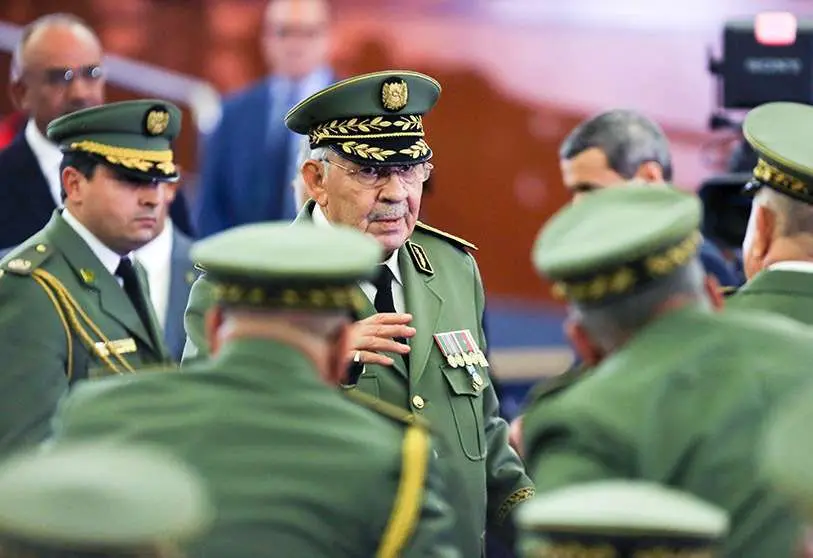The law of Talion falls on Algeria

Algeria, with its revolutionary social-communist ideology, has been trying for 46 years to establish a puppet republic in the Atlantic, thus amputating the territorial integrity of the Kingdom of Morocco. Algeria has mortgaged all its capital, present and future, and is today a failed state.
Today, Morocco is imposing the weight of the law of Talion on Algeria by expressing its support for the independence of Kabylia. This support has stunned the Algerian dictatorship, which still cannot explain the reasons for this turn in Moroccan foreign policy.
Morocco's support for Kabylia is not new. On 3 November 2015, the then Moroccan representative in New York, Omar Rabi, had already asked the UN and its various bodies to include the issue of Kabylia on their respective agendas so that the international community could accompany the Kabyle people in their struggle for independence.
On the 13th and 14th of this month, the new Algerian Foreign Minister Lamamra, in his first international intervention and, as usual and without being on the agenda of the ministerial meeting of the Non-Aligned Movement where the issue of COVID-19, vaccination and the way out of the crisis was discussed, once again referred to the question of the southern provinces of the Kingdom. This time, however, the newly appointed Algerian minister was outfoxed by Morocco's permanent ambassador to the UN, Omar Hilale, who gave him a harsh retort on the right to self-determination, referring to the constant legitimate claims of the people of the Algerian-occupied Kabylia to the north-east.
Consequently, the Algerian military dictatorship qualified the Moroccan action as interference in internal affairs and an attack on its territorial integrity, calling for consultations with its (symbolic) ambassador in Rabat. Algeria's brazenness knows no bounds: for 46 years it has instigated its neighbour by calling for the self-determination of mercenaries that they themselves had invented, armed and, from Algerian territory, attacked the territorial integrity of the Kingdom of Morocco.
Algeria is being punished for its sins. Moreover, still stunned by the coup, it wonders why. Because it has spent 46 years squandering the Algerian budget, more than 500 million dollars on heavy weapons with which it arms its mercenaries to attack Morocco. Because for 46 years it has been harbouring separatists who declared a fictitious republic on its territory. Because for 46 years it has been the spokesman and diplomatic representative of the Polisario gang throughout the world. Because for 46 years it has had an Algerian agenda, at home and abroad, dedicated to undermining the territorial integrity of the Kingdom of Morocco.
Because for 46 years he has been responsible for the structure and maintenance of a fictitious conflict. Because it has spent 46 years insulting and threatening its neighbour from military and civilian power, with ministers at the helm, and from the press controlled, in its entirety, by the military dictatorship. Because for 46 years it has been imprisoning and torturing the few Sahrawi people who remain in the Tindouf camps without any possibility of leaving or of being registered or controlled by the international community. Because it has been violating the border of the Southern Provinces of the Kingdom for 46 years, together with its Polisario mercenaries who, lately, are being eliminated by Moroccan drones. Because for 46 years it has been sowing resentment among its population in schools, colleges, universities and even in mosques, instilling hatred towards its neighbour Morocco. Because for 46 years...
Algeria, since it gained independence in 1962, with the invaluable help of King Mohammed V and Hassan II, by French decree after a referendum, continues to hold its rifle aloft in the image of Che Guevara, Fidel Castro or Hugo Chávez, Maduro or Daniel Ortega. And he has claimed to be the bulwark of the people's liberation movements. However, it has never called for the independence of the 15 former Soviet republics when they were under the yoke of the USSR or simply Taiwan, or Tibet, Corsica (France) or Catalonia, although it has supported ETA, which it supported, sheltered, financed and trained on its territory during the terrorist group's bloodiest years.
Kabylia is one of Africa's oldest and most authentic peoples, whose capital is Tizi Ouzou, with around 12 million inhabitants, its own language and culture, which is being persecuted and deprived of the right to self-determination by the Algerian military dictatorship. In 2010, Kabylia formed a provisional government in exile in Paris, led by its interim president Ferhat Mehenni.
After 46 years of aggression, the result could not be more fruitful for a Morocco that is consolidating the Moroccan identity of its southern provinces by providing them with the best infrastructures, the international community supports the autonomy plan proposed by Morocco, and the country is consolidating its position as a regional and continental leader, with unstoppable economic expansion and a first-rate industrialisation of the country.
Instead, Algeria has today shown itself to be, unabashedly, a military dictatorship that is totally discredited and increasingly isolated from the world. It is a failed state politically, economically and socially. It is completely bankrupt and is breaking down every Friday with the Hirak's constant protests against the military, the high cost of living, unemployment, galloping inflation, shortages of cereals, dairy products, oil and even drinking water. A calamity comparable only to that of Cuba or Venezuela and from which Bolivarian support for the just cause of Kabylia is expected. Those of Unidas Podemos, the more than 600 Spanish associations in favour of the Polisario and the whole Spanish and international left are also invited to this solidarity.
The Algerian military dictatorship, unconscious of its harmful acts against its neighbour for 46 years, is waking up from its drunkenness as the weight of the law of Talion falls on it, realising the magnitude of its systematic hostility towards the Kingdom of Morocco.
Its main mistake has been to confuse Morocco's diplomatic and pacifist policy, in the face of its political violence, with fear.

